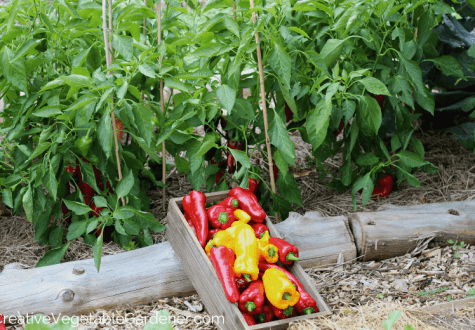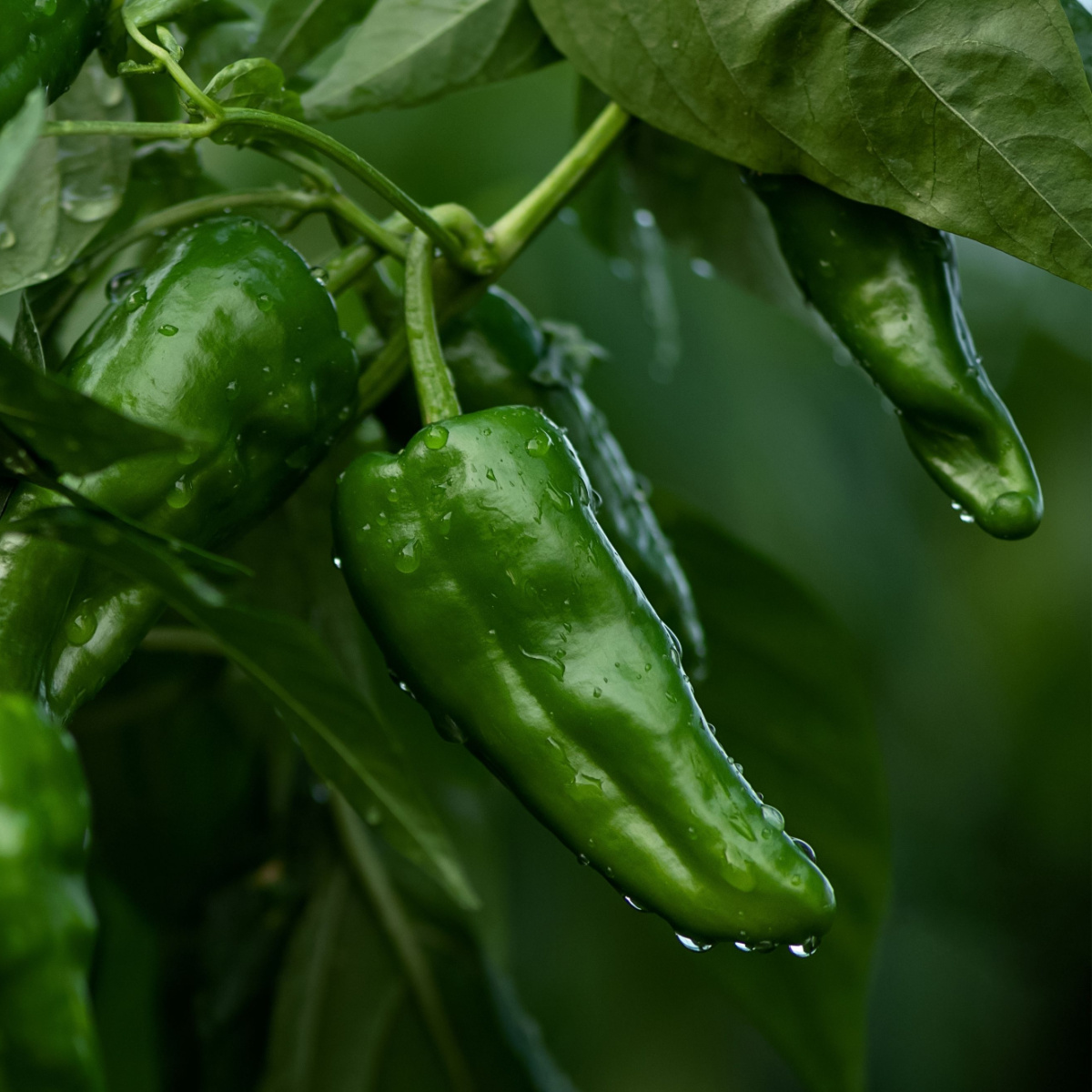Find Out the Best Fertilizers for Peppers: Top Picks for Ideal Development
Find Out the Best Fertilizers for Peppers: Top Picks for Ideal Development
Blog Article
Organic Vs. Synthetic Fertilizers: Which Is Best for Nurturing Healthy Pepper Plants?
In the world of supporting healthy pepper plants, the option between natural and synthetic fertilizers stands as a crucial choice with significant ramifications. While both options aim to offer important nutrients to support plant development, the nuances of their effect on the soil, plant health and wellness, and the atmosphere stimulate a discussion that echoes throughout the horticulture community. Comprehending the distinct benefits and prospective challenges of each fertilizer type is important for pepper cultivators looking for to optimize their yields while keeping a sustainable and eco-conscious method.
Benefits of Organic Fertilizers
Organic fertilizers supply a sustainable and environmentally-friendly approach to nourishing pepper plants, providing essential nutrients without the use of synthetic chemicals. These all-natural fertilizers are originated from natural sources such as compost, manure, bone dish, and seaweed, advertising soil wellness and biodiversity. Unlike artificial fertilizers, natural options launch nutrients gradually, guaranteeing a steady and balanced supply for pepper plants to prosper.
One significant advantage of organic fertilizers is their capacity to improve soil structure and water retention. By enhancing soil wellness, organic plant foods advertise useful microbial task, which assists in nutrient uptake by pepper plants. In addition, natural fertilizers decrease the danger of chemical run-off, safeguarding water sources from air pollution and securing the setting.
In addition, organic plant foods add to lasting soil fertility by promoting the growth of useful soil organisms. These organisms help damage down raw material, launching nutrients in a kind that is conveniently obtainable to pepper plants. best fertilizers for peppers. By promoting a healthy and balanced dirt environment, natural fertilizers sustain lasting pepper growing methods that profit both plants and the setting
Downsides of Synthetic Fertilizers
Artificial fertilizers, in contrast to their organic counterparts, posture numerous downsides when used to nurture pepper plants, affecting both plant wellness and ecological sustainability. One significant downside of synthetic plant foods is their tendency to leach nutrients from the dirt quickly. This rapid leaching can lead to vitamins and mineral imbalances in the dirt, creating plants to experience from poisonings or shortages. Furthermore, synthetic plant foods can damage beneficial dirt organisms, such as earthworms and useful germs, disrupting the soil ecosystem's equilibrium.
Moreover, the overuse of artificial fertilizers can add to water air pollution. Excess plant foods not soaked up by plants can remove right into water bodies, bring about eutrophication, where algae flowers diminish oxygen levels in the water, harming marine life. Synthetic plant foods are usually acquired from non-renewable sources, such as fossil fuels, adding to carbon exhausts and ecological deterioration throughout their manufacturing.
Nutrient Absorption Comparison
Reliable nutrient absorption plays an essential role in the overall health and development of pepper plants. When contrasting organic and artificial plant foods in regards to nutrient absorption, organic fertilizers have the benefit of providing a much more well balanced and slow-release resource of nutrients (best fertilizers for peppers). Organic fertilizers consist of a selection of macro and micronutrients that are not just useful for the plants yet additionally promote healthy dirt microbial task, which aids in address nutrient uptake. On the other hand, artificial plant foods commonly provide a quick release of nutrients, which can lead to leaching and runoff, leading to reduced nutrient absorption prices by the plants.
Additionally, natural fertilizers enhance soil framework and water retention ability, permitting pepper plants to access nutrients much more effectively. This enhanced soil quality assists in origin advancement, allowing much better nutrient absorption. Artificial plant foods, although originally improving plant development because of their high nutrient concentrations, may prevent lasting nutrient absorption by derogatory dirt health and wellness over time.
Environmental Impact Considerations

On the various more other hand, artificial fertilizers, although often even more quickly offered and concentrated to plants, can have destructive impacts on the environment otherwise used appropriately (best fertilizers for peppers). Their production calls for high energy inputs, bring about greenhouse gas emissions and adding to environment modification. The drainage of excess synthetic plant foods can pollute water resources, leading to eutrophication and harming marine ecosystems.
Best Fertilizer Practices for Peppers
When feeding pepper plants, maximizing nutrient uptake and reducing ecological influence are key considerations. To attain this, it is necessary to adhere to ideal fertilizer practices tailored to the particular requirements of pepper plants. One critical practice is to perform a soil test before applying any fertilizers. This test can identify the pH level of the soil and determine any kind of nutrient shortages, leading you in selecting the most appropriate fertilizer formula.
An additional vital technique is to feed pepper plants at the ideal time. Normally, peppers take advantage of getting fertilizer at planting and after that again when they begin to blossom. Over-fertilizing can cause vitamins and mineral discrepancies and damage the plants, so it is essential to comply with recommended application prices.
In addition, selecting a balanced plant food with an NPK ratio that suits pepper plants' needs is basic. Organic plant foods, such as garden compost or manure, can be exceptional options as they release nutrients gradually and enhance soil framework in time. Synthetic plant foods can offer a fast nutrient increase when needed. Eventually, combining artificial and natural fertilizers carefully can assist nurture healthy and balanced pepper plants while lessening environmental effect.
Conclusion

Organic plant foods offer a lasting and environmentally-friendly approach to nourishing pepper plants, supplying important nutrients without the use of artificial chemicals. Unlike artificial fertilizers, organic alternatives release nutrients slowly, making sure a balanced and constant supply for pepper plants to thrive.
Artificial plant foods, in comparison to their organic counterparts, present numerous drawbacks when utilized to nurture pepper plants, influencing both plant health and environmental sustainability. When comparing artificial and natural plant foods in terms of nutrient absorption, organic fertilizers have the advantage of providing a much more balanced and slow-release source of nutrients.Moreover, organic fertilizers improve soil structure and water retention capability, enabling pepper plants to gain access to nutrients a lot more effectively.
Report this page